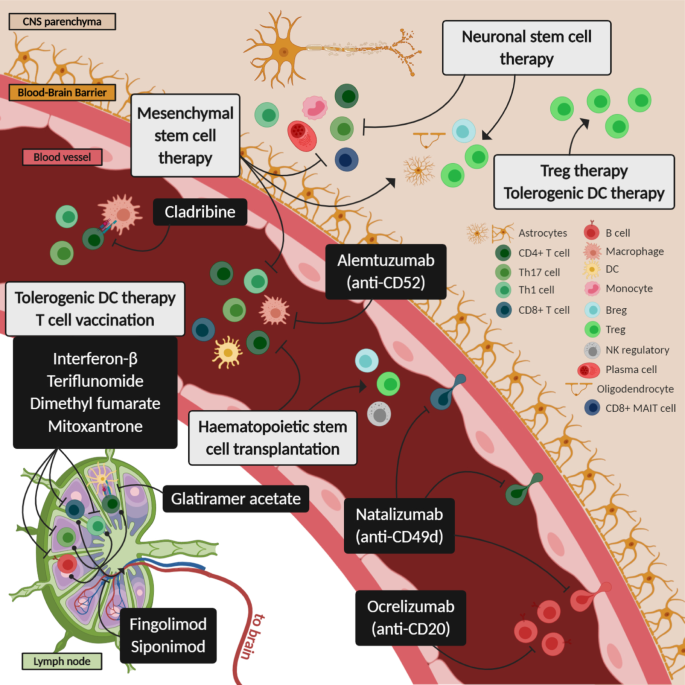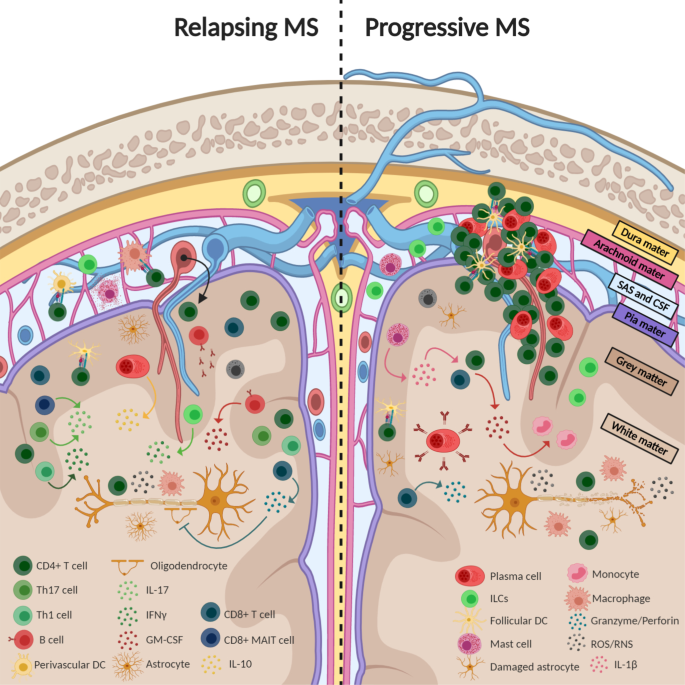Getting My Regenerative Medicine For Multiple Sclerosis To Work
Wiki Article
The Single Strategy To Use For Regenerative Medicine For Multiple Sclerosis
Table of ContentsLittle Known Questions About Regenerative Medicine For Multiple Sclerosis.The Regenerative Medicine For Multiple Sclerosis IdeasThe Only Guide for Regenerative Medicine For Multiple SclerosisThe Best Guide To Regenerative Medicine For Multiple SclerosisSome Known Incorrect Statements About Regenerative Medicine For Multiple Sclerosis Regenerative Medicine For Multiple Sclerosis for BeginnersThe Basic Principles Of Regenerative Medicine For Multiple Sclerosis
The mesenchymal stem cells transplanted during stem cell treatment can divide and grow to develop brand-new cells that can replace the damaged cells of the nervous cells. This could bring back neurological features in patients with this condition. These advantages of stem cell therapy are further supported by the capability of MSCs to advertise healing.Patients with several sclerosis are generally treated with mesenchymal stem cells. These are multipotent stem cells that have the ability to distinguish and grow to develop a large range of cell enters the body. Once hair transplanted, these stem cells can develop to develop healthy and balanced nerve cells therefore sustaining the regeneration of the broken tissues of the nerve system.
Once hair transplanted, the stem cells move to locations of inflammation or damages within the main nerve system (CNS). They are naturally brought in to the sites of injury where the body immune system is striking the myelin sheath, the safety treatment of nerve fibers. The stem cells work by promoting the repair and regrowth of damaged myelin, potentially recovering feature to influenced nerve cells.
Our Regenerative Medicine For Multiple Sclerosis Ideas
Stem Cell Research on MS The National Several Sclerosis Society, together with various other organizations, is actively funding and sustaining research into mesenchymal stem cell treatment for multiple sclerosis to explore their prospective and enhance treatment procedures. The objective is to develop much safer and extra reliable means to use stem cells in dealing with MS.
Below are testimonials from clients of the Swiss Medica clinic. The client traveled from England looking for remedy for his MS symptoms, a problem he has battled given that 2006. For many years, he has fought with fatigue, movement issues, and issues with his bladder and digestive tract, all coming from nerve damages.
His treatment experience was smooth. He likewise valued that his travel, lodgings, and vegetarian dietary preferences were thoughtfully arranged. "The clinical team were superior, particularly the physician. Whatever was clearly explained, and they were thorough in their checks. I would definitely suggest this area." The patient took a trip from Romania looking for therapy for MS after listening to favorable comments regarding stem cell treatment for the disease.
Get a free online examination to discover how stem cells will function for your instance, and what are the period and cost of the treatment. Uccelli, A., Laroni, A., Brundin, L., Clanet, M., Fernandez, O., Nabavi, S. M. Regenerative Medicine for Multiple Sclerosis., Muraro, P. A., Oliveri, R. S., Radue, E. W., Sellner, J., Soelberg Sorensen, P., Sormani, M. P., Wuerfel, J. T., Battaglia, M
Stem cells are cells in the body that can mature into specialized cells that serve an offer functionCertain There are two main kinds of stem cells: embryonic stem cells and adult stem cells.
are found in some adult tissues and organs consisting of the bone marrow, skin, blood, and brain. Adult stem cells are not as flexible as beginning stem cells and are for that reason a lot more minimal in terms of the sorts of cells they mature into. The special buildings of stem cells supply pledge for new treatments that can slow/halt MS illness task and repair cells damages in the central nervous system.
Regenerative Medicine For Multiple Sclerosis for Dummies

The procedure entails accumulating stem cells from a person's own (autologous) bone marrow. The individual is then treated with radiation treatment to deplete the body immune system and stem cells are reintroduced into the body where they develop into brand-new, healthy immune cells - Regenerative Medicine for Multiple Sclerosis. Stem cells can be infused right into the body in different methods

In 2000, the MS Culture of Canada and MS Scientific Study Foundation funded a clinical test including HSC transplants, led by Drs. Mark Freedman and Harry Atkins from the Ottawa Healthcare Facility Research Study Institute/University of Ottawa. The aHSC treatment offered in Canada is a therapy that uses high-dose chemotherapy, also called conditioning.

Some Known Incorrect Statements About Regenerative Medicine For Multiple Sclerosis
Neural stem cells (NSC) are discovered in the brain and can develop right into different kinds of mind cells including nerve cells, oligodendrocytes, and astrocytes. NSCs might offer to repair or safeguard the brain and modulate the immune system. Early medical trials in non-human primates showed that treatment with NSCs profited the development of MS-like illness in pet models.The outcomes from these safety and security studies are positive for future stem cell and regenerative medication treatments in MS. Future scientific tests (stage 2 and 3) with bigger varieties of participants and controls are essential to analyze the efficiency of this treatment for MS. As shown by the examples above, there is a large selection of study occurring that will offer added responses about the usage of stem cells to deal with MS.
Stem cell therapy is considered risk-free, but, like any kind of clinical treatment, it lugs some risks, such as short-lived swelling or discomfort at the shot site. Serious side results are uncommon when done by qualified experts.
How Regenerative Medicine For Multiple Sclerosis can Save You Time, Stress, and Money.
Multiple sclerosis (MS) is a description chronic illness of the main nerves that affects the mind and spine. It is identified by the deterioration of myelin, a substance that covers nerve fibers, leading to disturbances in interaction in between the brain et cetera of the body. Symptoms can differ extensively and include muscle weakness, vision issues, inequality, and fatigue.Multiple sclerosis is characterized by the immune system incorrectly attacking the safety sheath (myelin) that covers nerve fibers, creating communication concerns in between the mind and the remainder of the body. The condition can cause the deterioration or permanent damage of nerves. Signs differ extensively amongst patients and can consist of exhaustion, flexibility problems, discomfort, and cognitive changes.
Report this wiki page